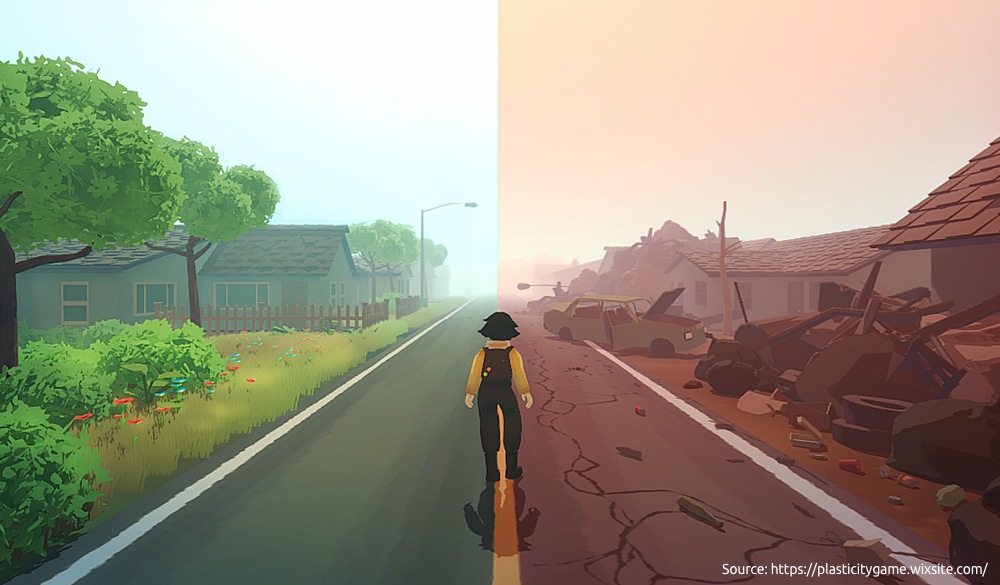Environmentalism has historically provided subject matter for exploration in video games. But, as climate change becomes more and more pressing an issue, game developers are getting on board. Both within games and throughout the gaming industry, climate change is emerging as a dominant focal point.
Video games with climate change themes
An ever-increasing number of indie games are emerging that explore climate change, or use it as the main premise of their design. Examples include:
- Lumino City – made using recyclable sets and designed to raise awareness of renewable energies.
- Plasticity – set in a world riddled with plastics, players have to make choices to save what’s left.
- Beyond Blue – made in partnership with the BBC, this game explores ocean conservation.
- Endling – told through the eyes of the last foxes on earth after mankind has destroyed itself and the environment.
- TEMTEM – similar to Pokemon and set in a world without man-made climate change, the populace are conscious of conserving resources as environmentalist themes are embedded into this game’s design.
But this is nothing new in gaming. Even classic and big-brand games have included environmental themes:
- Final Fantasy VII – a nostalgic powerhouse from the era of the first playstation, and recently remade, this game literally features eco-terrorists as protagonists who attempt to fight back against damage being done to the planet by the ‘Shinra’ corporation.
- Knights of the Old Republic 2 – this game includes a large section where the player chooses between two factions trying to run a conservation effort on a planet destroyed by war. One has a genuine interest in successful conservation (the light side approach), the other is looking to maximise profits from the project (dark side).
- Sid Meier’s Alpha Centauri – this game includes the environmental impact of colonising planets and has factions who are more or less equipped to offset environmental impact.
- SimEarth – an ancient DOS-era game that includes pollution, climate change, and melting ice caps as game mechanics themselves.
- Day of the Tentacle – another relic that remains popular today, the events of the story are set in motion by excess pollution, even if the consequences take on the less grounded form of a mutant megalomaniacal tentacle.
Still, as climate change becomes more critical than ever, it’s becoming a hotter and hotter topic, as both subject matter within games, and as an initiative for the gaming industry.
Teaching climate change through gaming
Like all media, gaming can be a platform to teach about and explore social issues. When it comes to the public understanding of science, research is already being done on digital narrative and interactive storytelling to help people get to grips with important scientific topics like climate change.
Joey J. Lee explains how video games allow people to actively engage with scientific concepts that are otherwise too abstract or intangible. He goes on to say that they can simultaneously provide a way for people to emotionally connect to the impact of global warming or other environmental disasters.
How the games industry affects climate change
It’s not enough for game developers to preach about climate change – they need to put green practices in place to help make gaming environmentally-friendly. Lewis Gordon outlines the carbon footprint of the gaming industry itself, including:
- 34 terawatt-hours of energy used each year (equivalent to 5 million cars)
- Petroleum-based hardware components
- Mining for raw materials
- Air miles used to conduct gaming industry business
Some companies like Space Ape are already building carbon neutrality into the way they run their business. And, while digital downloads help alleviate the environmental impact of physical copies of games, issues like a lack of energy efficiency in gaming consoles stands in the way of a sustainable gaming industry.
Sources
https://www.euronews.com/green/2020/02/17/is-playing-video-games-making-climate-change-worse
